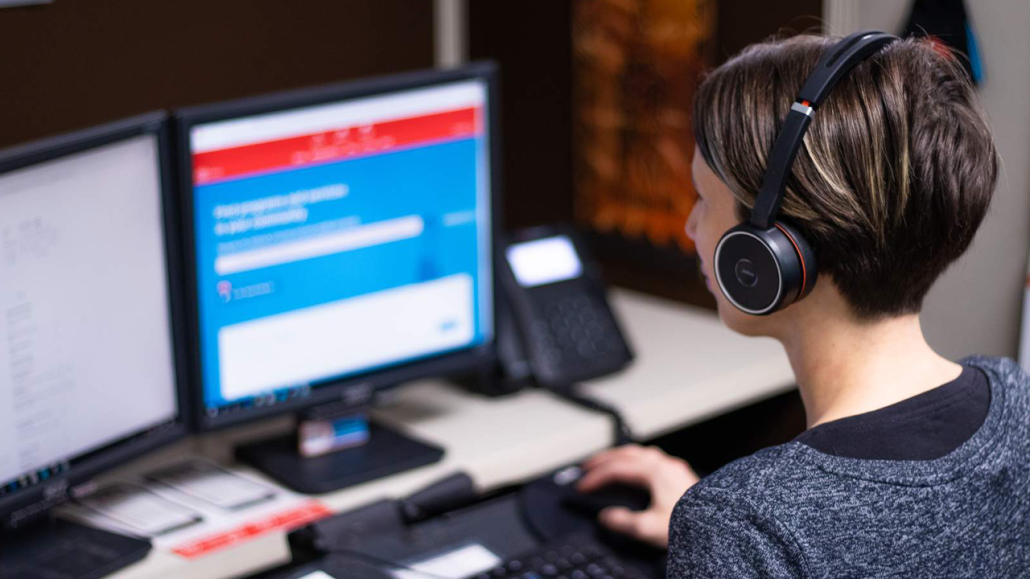
Help starts with 211, for all Canadians
Every day, all year long, 211 connects people to the government and community-based social services and benefits they need, when they need it most.
Anyone living anywhere in Canada can pick up the phone and dial 2-1-1 to reach a Service Navigator for information on community-based health, social and government services in or near their community. Each year, more than two million Canadians are connected with the help they need through 211, and 89 percent report receiving the help they need from a 211 referral. The service is free, confidential, and available by phone, text and web chat 24 hours a day, 7 days a week, in most of Canada, with 1.5 million visitors accessing 211’s database of local resources annually. It is even available in more than 150 languages. By simply dialing or texting 2-1-1, individuals are connected to information about local supports such as:
- food banks and communal meal programs
- income assistance programs
- legal resources
- support for mental health and addictions (counselling services)
- housing options including emergency shelters
- support for seniors, newcomers, and much more
It’s no coincidence that this major, Canada-wide initiative was launched amidst the challenges Canadians were facing at the beginning of the COVID-19 pandemic. On Oct. 15, 2020, the Government of Canada, in partnership with United Way Centraide Canada, announced funding to activate the nationwide expansion of 211. The government also announced funding to support existing 211 services experiencing surging demand.
After all, 211 was uniquely positioned to support emergency response and management then, and continues to play an important role for people now as they struggle with the high cost of living, increased needs for food access and decreased housing affordability during this post-pandemic period.
In 2023, 602,834 contacts made by phone, text, chat and email were answered by the 211 service, and 686,000 requests for support were handled by 211 Community Navigators. Housing and shelter were the top needs expressed in contacts with the 211 services followed by mental health supports.
As we continue to grapple with the effects of this period of economic strain, 211’s role as a vital connector for people in need is invaluable. Knowing where to turn when you are faced with challenges in your life is not often simple. 211 helps people to navigate the system and find support quickly and easily, which takes the strain off agencies and other services like 911 who would otherwise be handling these calls. 211 helps connect people to the right information and services, including mental health support, financial counselling, food and more.
And the service holds a special place in the hearts of all of us at United Way Greater Toronto since the first 211 was opened right here in Toronto in 2002. It has since expanded steadily to other provinces through funding support from local United Way Centraides and provincial and municipal governments.
What is the difference between 211, 311, 411, 811 and 911?
These special numbers are assigned by the CRTC to make it easier for Canadian residents to find help when they need it, but it can be confusing if you aren’t sure which one to call.
Most of us are aware that 911 is the number to call for life-threatening emergencies; however, many Canadians are calling 911 for other reasons that are better handled by 211 Navigators. Chief Bryan Larkin, President of the Canadian Association of Chiefs of Police, says he and his members know first-hand the importance of ensuring more people know about 211 as a front door to support.
“Our frontline officers respond to calls for service from the community every day, not related to crime. The stress and anxiety brought on by the pandemic, an inability to feed or house yourself or your family, substance abuse, those are examples of real emergencies for people, and when they don’t know where to turn, they often go to the number they know best. But, we’re hoping increased access to 211, and a better understanding of the service will divert more of those calls to the helpline that can connect people to the support they need,” says Larkin.
211 is the number to call for information on community-based health, social and government services. It is the number to call when you need help but aren’t sure where to turn.
Other special numbers
In large cities, 311 is the number established to access information about municipal services (such as by-law enforcement, road repairs, garbage collection, municipal recreation programs, property taxes, etc.).
411 is the number that residents call for business or residential listings (phone book/yellow pages).
In some provinces, 811 is the number that residents call for help finding health information and services.